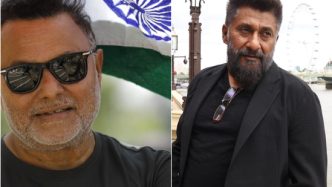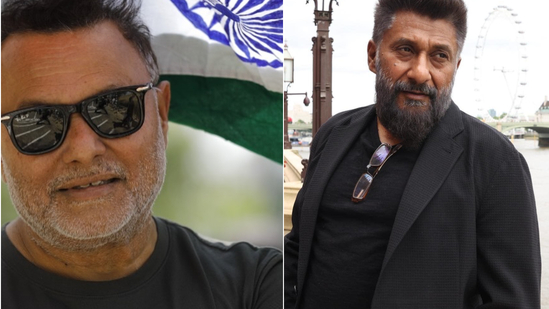After Turkey and Azerbaijan expressed solidarity with Pakistan during the recent Indo-Pak tensions, Indian film bodies have urged the industry to cease filming in those countries.
The All Indian Cine Workers Association (AICWA) and the Federation of Western India Cine Employees (FWICE) have also issued press releases, urging the boycott of shooting in Turkey and the prohibition of its artistes from working in India. The FWICE has subsequently sent memoranda to the I&B Ministry and OTT giants in India, requesting the removal of Turkish shows.
Bollywood’s encounter with Turkey
Several Indian films, including Guru (2007), Race 2 (2013), Dil Dhadakne Do (2015), and Tiger Zinda Hai (2017), were filmed in Turkey, which resulted in a tourism and economic boom for the country. According to a source, the cost of a 2-4-day schedule for an Indian film in Turkey ranges from ₹5 crore to ₹6 crore. The cost may increase to ₹30 crore to ₹40 crore in the presence of prominent actors and large production houses. The cost is primarily determined by the location they select; however, this is a general estimate.
In response to the appeal for a boycott, Suresh Shyamlal Gupta, President of AICWA, stated, “AICWA has a single demand: that Indian films not be filmed in Turkey or Azerbaijan.” Subsequently, it is imperative that we prohibit the employment of individuals from Turkey or Azerbaijan in India and revoke their visas. Additionally, we will compose a letter to the Foreign Ministry of India concerning this issue.
According to BN Tiwari, President of FWICE, “Our foremost principle is the welfare of the nation.” You are providing armaments that are causing harm to innocent individuals. We are unable to endure this. Humne jo letter likha hai wo puri film industry ko bheja hai. Our intention is to also send a letter to the government, stating that Turkish artists are performing at the restaurant. We will boycott them and issue a non-cooperation notice if someone (from within the industry) supports them.
In the interim, filmmakers also contributed to the clamor for a ban. According to director Anil Sharma, who is renowned for his blockbuster film Gadar, there is no quantity of creative satisfaction that surpasses love for the country. “If the appeal is not made, it is the responsibility of the filmmakers to advocate for India.” Bhai ke saath hai, hum uske saath hai. After the incident, we decided not to travel to Turkey, which was a location in the script. Utkarsh was the intended destination. The country is incredibly picturesque, and as a filmmaker, it is certainly worth filming there. However, the creative satisfaction that India derives from its affection and interest in our country is unparalleled.
Producer Tanuj Garg further elaborates, “We, as Indian filmmakers, are concerned with the broader sentiment at home in addition to the creative and logistical challenges of filming abroad.” We are of the opinion that it is crucial to ensure that our decisions are in accordance with the sentiments and sensibilities of our audience and nation, despite the fact that countries such as Turkey and Azerbaijan have much to offer. We will be cautious about pursing shoots in these regions until there is a more positive shift in sentiment and bilateral warmth.
Vivek Ranjan Agnihotri, director of the Kashmir Files, concurs with this decision, asserting, “I believe it is a just decision and this is the appropriate course of action for all parties involved in a war.” In contemporary times, war is not characterized by the march of armies within each other’s borders. War exists on a multitude of levels, including cyber war, info war, and narrative war. Therefore, it is evident that if we refer to Pakistan as an enemy country, any individual or entity that provides support in the traditional sense of combat is considered an enemy country. Vivek continues, “I fail to comprehend the rationale behind filming in countries that are irrelevant.” We will not incur any losses. I believe it is the correct course of action. Numerous voluntary organizations, travel agencies, and Indian citizens should participate in this boycott. Stand together in support of India. Today, conflicts are not solely won at borders; they are also won on the narrative playing field.
According to filmmaker Onir, he maintains a “mixed perspective” and is perplexed as to why there is a demand for boycotting only Turkey and Azerbaijan, rather than China. “I have a conflicted response, as there will be opposing viewpoints in any conflict.” Arms have also been supplied by China. Why are we not prohibiting all interactions with China? Is it necessary for the moratorium to be uniform if Pakistani weaponry is observed, given that it is sourced from China and the United States?
He also states, “As an Indian citizen, I was deeply distressed by the fact that Turkey was providing arms to Pakistan during the war.” China has been providing support to Pakistan in this conflict without the use of camouflage. What is the reason for the prohibition of only Turkey and Azerbaijan? I would not feel at ease visiting a country that actively supports Pakistan during a conflict as a filmmaker or tourist.















